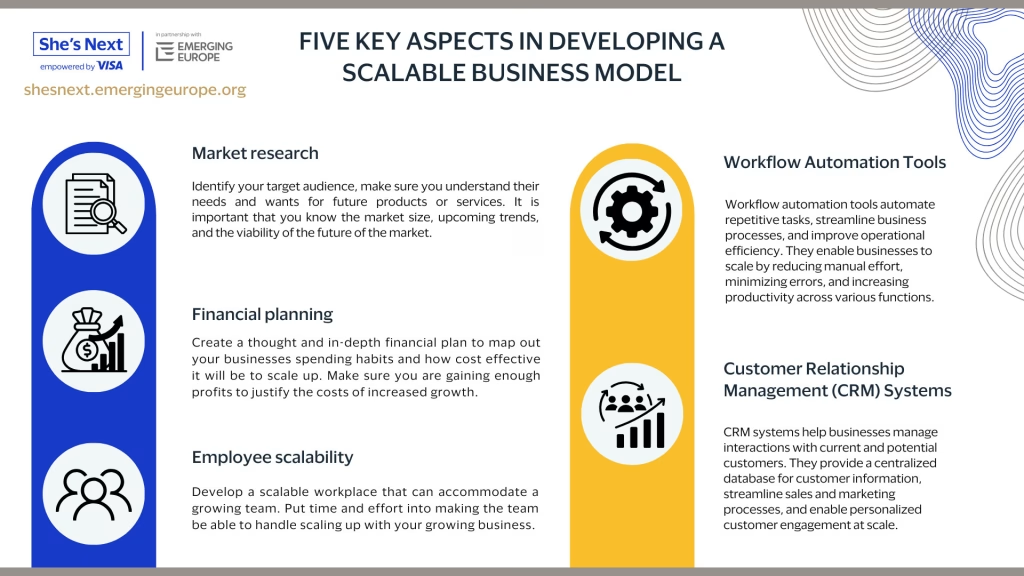
Building a Scalable Business Model
Developing a scalable business model can be one of the most rewarding things you can do as a business, its benefits are by far some of the key factors to a business’s success. Having a scalable business model allows for cost effective efficient growth with the ability to adapt to market changes and overall increased profitability.
A problem that new entrepreneurs face is the lack of experience when it comes to developing a scalable business model; even more experienced entrepreneurs struggle in this ever-changing business landscape. Here are some key steps you need to take to build a scalable business model:
Market research – Identify your target audience, make sure you understand their needs and wants for future products or services. It is important that you know the market size, upcoming trends, and the viability of the future of the market.
Financial planning – Create an in-depth financial plan to map out your businesses spending habits and how cost effective it will be to scale up. Make sure you are gaining enough profits to justify the costs of increased growth.
Employee scalability – Develop a scalable workplace that can accommodate a growing team. Put time and effort into making the team be able to handle scaling up with your growing business.
These are not the only contributing factors for making a scalable business model, and it is important to remember a wide variety of other factors such as customer-centricity, innovation, adaptability and more. But depending on your business, these factors can range in importance.

Technology in Scalability
Technology plays a crucial role in business model scalability by providing tools, platforms, and solutions that streamline operations, enhance efficiency, and facilitate growth. For example, technological tools can enhance efficiency, allowing the business to scale without a proportional increase in human resources. Here are some examples of technologies that facilitate business model scalability:
Workflow Automation Tools: Workflow automation tools automate repetitive tasks, streamline business processes, and improve operational efficiency. They enable businesses to scale by reducing manual effort, minimising errors, and increasing productivity across various functions such as marketing, sales, finance, and customer support.
Collaboration and Communication Tools: Collaboration and communication tools such as project management software, video conferencing platforms, and instant messaging applications facilitate remote work, collaboration among teams, and communication with customers and stakeholders. They enable businesses to scale their operations globally while maintaining effective communication and collaboration.
Customer Relationship Management (CRM) Systems: CRM systems help businesses manage interactions with current and potential customers. They provide a centralised database for customer information, streamline sales and marketing processes, and enable personalised customer engagement at scale.
Another prime example of technology being able to help with scalability is the use of data analytics. Data analytics tools enable businesses to collect, process, and analyse large sets of data. This approach provides valuable insights into customer behaviour, market trends, and operational performance, empowering informed decision-making, saving time, capital and recourses making scaling up easier. A great example of data analytics tools are Google Analytics and Microsoft Power BI.
Leveraging every available tool is essential for gaining a competitive edge. Adopting a scalable business model could be the strategic advantage you need to outpace the competition and significantly enhance your prospects for sustained success in the long run.
New Free Courses — Made for Ambitious Women Entrepreneurs!
It’s time to grow smarter, adapt faster, and take your business global.
Explore two powerful courses available exclusively to She’s Next members:
The Reinvention Masterclass for Start-up Founders
Beyond Borders: Building for Global Success
Enroll today — it’s free!






Responses